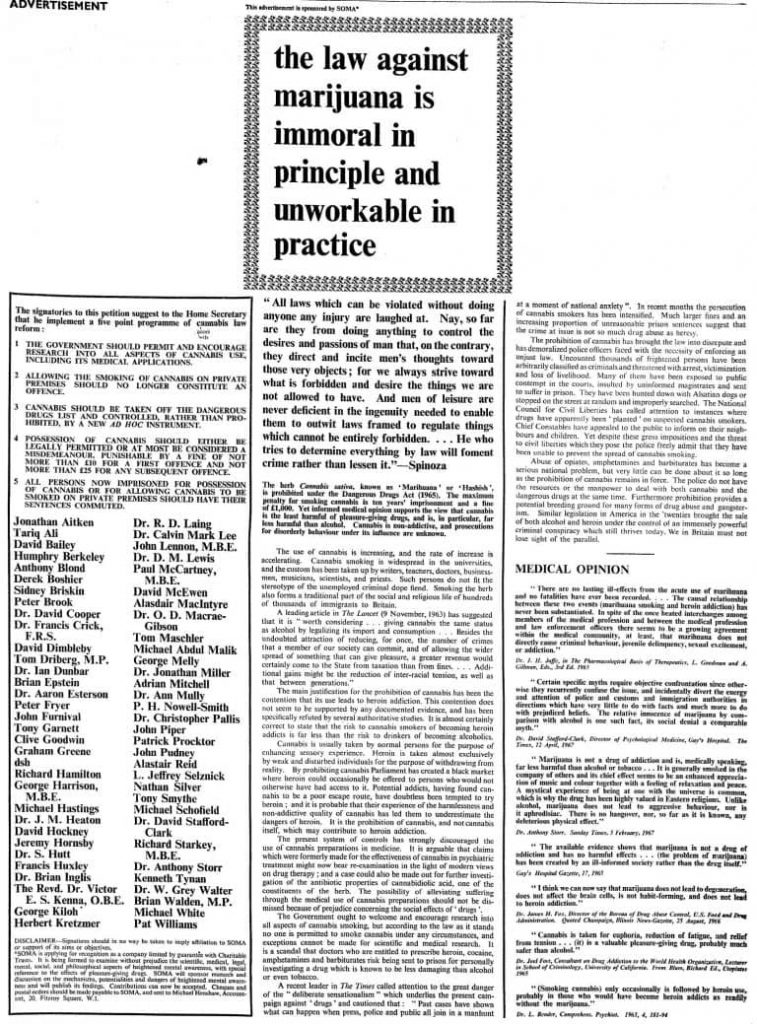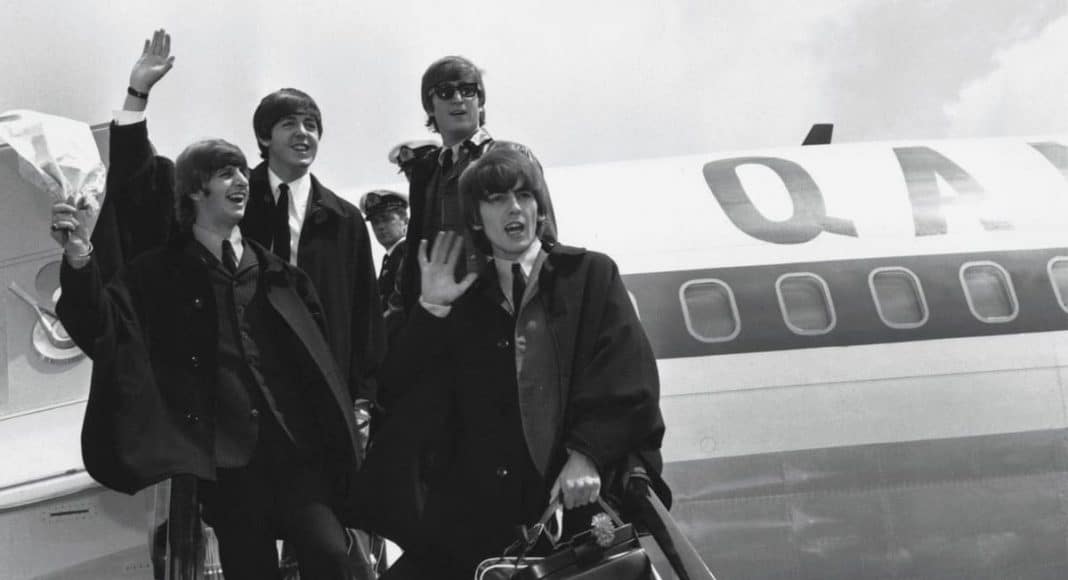Today celebrities receive more celebration than criticism for coming out in favor of marijuana legalization. In fact, a rising number of celebs participate in the cannabis industry, either though branded products or owning dispensaries or investment. Being associated with marijuana wasn’t always so vogue, though. The support marijuana has now comes from many hard-fought battles and trailblazers. That includes The Beatles, who 50 years ago this week publicly advocated in favor of cannabis.
-
Related Story: 13 Rappers Who Are Dominating The Cannabis Industry
As detailed by the Beatles Bible, the action was prompted by the arrest of photographer and International Times founder John Hopkins, who received a ninth-month prison sentence for possession. This urged an activist group to round up 64 of British celebrities and influencers to take out a full-page ad in the London Times, hoping it’d prompt discussion of harsh policies. Among those celebrities was The Beatles and their manager Brian Epstein.
“[I]nformed medical opinion supports the view that cannabis is the least harmful of pleasure-giving drugs, and is, in particular, far less harmful than alcohol,” the ad states.

In this way, much of the ad includes arguments still being made today. Alcohol has far more destructive agency than marijuana, there are numerous medicinal benefits to the plant, and that widespread opiate abuse is alarming yet remains unaddressed. Part of the ad is a list of medical opinions that states “the available evidence shows that marijuana is not a drug of addiction and has no harmful effects.”
None of the Beatles were present during initial meetings to construct the advertisement. However, Paul McCartney eventually agreed to foot the bill. The ad cost £1,800, which was twice the average annual wage according to the Beatles Bible.
McCartney had wanted to keep his involvement secret, but that quickly proved impossible. The information was reported the next day in the Evening Standard’s Londoner’s Diary and caused him some negative backlash. But the advertisement did eventually have its desired effect. It prompted a public discourse on cannabis legalization and the maximum sentence for possession was reduced from 10 years to five.


